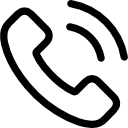Dry January - All You Need to Know About the Month

It is that time of the year again when 4 million people last year aimed to abstain from alcohol for an entire month. It's Dry January again.
You might have heard about the term “Dry January” a lot. You might even know what it means (the meaning is just one Google search away).
But have you ever wondered what is the true essence of this month? How did it all start?
Let's find it out!
It all started officially in 2013
The first Dry January was celebrated in 2013 by Alcohol Change UK, which is a UK based alcohol charity organization.
The organization aims to create awareness about the dangers of alcohol and promote the use of non-alcoholic drinks.
The event was celebrated with full zeal and zest. Many guests were invited who shared their stories of how they gave up alcohol and the challenges they faced along the way.
The highlight of the event was the appearance of the behavioral change expert, Dr. Richard de Visser from the University of Sussex. He participated in a survey program that was aimed at finding out the effects of participating in Dry January, six months down the road.
Surprisingly, it was found that seven out of ten people had drastically reduced their alcohol intake even after the Dry January was over.
In 2015, Alcohol Change UK partnered with Public Health England to create awareness about Dry January on a mass level. For this purpose, radio adverts were created.
Next year, in 2016, an application was created to motivate people to successfully navigate through the challenge.
All these marketing efforts by Alcohol Change UK brought in results and in 2017 it was estimated that over 4 million Britons participated in the challenge.
Now the event is not just restricted to the UK but many people around the world abstain from alcohol throughout the month.
Is participating in Dry January Worth it?
The above-mentioned research conducted by Dr. Richard should be enough to convince you about the effectiveness of the month. In case, it is not, let us dig deeper into the benefits of avoiding alcohol
1. A good night sleep
Nothing is more refreshing after a hectic day at work than a good sleep. Alcohol is known to cause dehydration, mood swings, and the obvious hangovers.
Can you expect to sleep well with all these things going on? We are sure the answer is a no brainer.

In fact, research published in JMIR publication found that alcohol can negatively impact sleep quality by 39.2%.
Therefore, avoiding alcohol ensures you have a deep and good sleep and wake up energized, refreshed and ready to face the challenges of the day ahead.
2. Improve in mental health
One of the biggest benefits of giving up alcohol is that it increases your focus and improves overall mental health, especially in females.
Additionally, going booze-free can avoid those frequent and unprecedented mood swings that even you might be fed up with.
It is also believed that going alcohol-free can improve one's recognition of verbal and visual cues.
3. Boost in immunity
A heavy drinker has a very poor immune system and is prone to frequent diseases. Getting frequently sick might take a toll on one’s mental health as well.
Especially during these times of COVID, it is much more important than ever before to have a strong immune system and that is only possible if you give up alcohol.
4. Reduction in Cholesterol
If we are to summarize all the benefits of going sober, we can say it improves the overall health of a person. If you are diabetic and have frequent cholesterol problems, giving up alcohol is the only option.
Even if you are taking medicine, alcohol is believed to interact with the medication and nullify its effect. Therefore, it is better to stay away from drink.
Instead, you could try out Drink Dry’s sugar-free range of non-alcoholic gins along with your friends and still enjoy the company without the fear of any complications.
What’s after Dry January?
Before thinking about the next step, it is important to make sure that you make it through the month. It's a lot easier than you think.
You are not on your own. There is a whole community to support you which you won’t find at any other point of the year. So avail this once a year opportunity.

Once you have successfully passed the Dry January challenge, the real test begins. Obviously, you won’t be able to give up alcohol altogether for the rest of the year, but that shouldn’t be the goal either.
The goal must be to reduce the amount of drinking. Going sober should be a gradual process and attempting to completely give up alcohol can backfire.
For example, if you consume a bottle of wine a day, consider reducing it to half a bottle a day. Making gradual progress is a proven methodology for getting rid of any bad habit.
Having said that, it is also important to mention again that for those who successfully go past the Dry January challenge, it is easier for them to reduce their alcohol intake.
When talking about the history of Dry January, we spoke about a survey conducted by Dr. Richard de Visser which found out that seven out of ten people successfully managed to reduce the intake of alcohol.
Non Alcoholic drinks can be the savior
Yes, it is difficult to reduce alcohol consumption beyond Dry January as that means missing out on parties or hanging out with friends.
However, that is not the case in 2021. There are tons of non-alcoholic drinks out there in the market that taste just like the real deal. (YES YOU READ THAT RIGHT!).
And it's easier to get access to them than ever before.
For example, you can simply visit our store, browse through the variety of non-alcoholic drinks, and get them delivered at your doorstep.
It can't get simpler than this!
So the next time you have friends inviting you to a party, consider giving them a non-alcoholic drink and they will surely love it.
Dry January is a fun way to give up alcohol
Whether you are an acute drinker or seldom sip alcohol, participating in Dry January will benefit you in more ways than you can think. This is not our personal statement, but you have seen for yourself, the research proves it.
Even though half the month has passed, it's better late than never.








